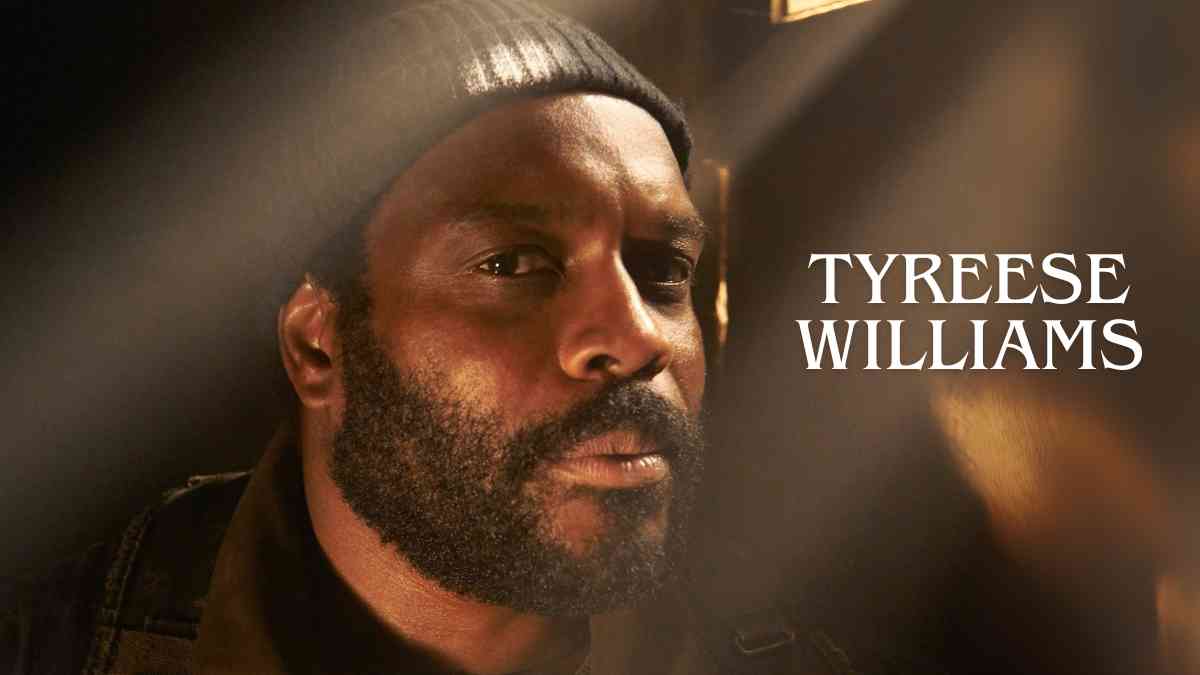Tyreese Williams: The Gentle Warrior Who Redefined Strength in The Walking Dead

In the world of post-apocalyptic fiction, characters are often painted in shades of brutality, survival instinct, and moral decay. But Tyreese Williams, a key figure from AMC’s The Walking Dead, offered something refreshingly different. With a quiet resilience and a heart as heavy as the hammer he wielded, Tyreese became a symbol of inner strength, compassion, and the complexity of morality in a broken world. His journey resonated deeply with fans, not merely for the battles he fought, but for the soul he never lost.
Origins of Tyreese Williams: Comic Roots vs. TV Adaptation
Tyreese first appeared in The Walking Dead comic series created by Robert Kirkman, debuting in Issue #7 in 2004. In the graphic novels, Tyreese is portrayed as a former NFL linebacker, a father to a teenage daughter, and a rugged survivor who quickly earns Rick Grimes’ trust. His moral compass and emotional depth were central to his character, even in this more action-driven format.
In the television adaptation, his backstory shifts slightly. Played with intense emotional gravity by Chad L. Coleman, the TV version of Tyreese is introduced in Season 3. He is depicted as a former athlete from Jacksonville, Florida, who looks after his sister Sasha. Though his profession and family details change, his essence remains the same — a man wrestling with the consequences of violence and the value of human life.
The Hammer as a Symbol: Strength Without Savagery
Unlike many survivors in The Walking Dead, who resorted to firearms and brutal methods, Tyreese was often seen wielding a hammer. This weapon of choice was no accident. It symbolised both his raw strength and his controlled aggression. Tyreese fought when necessary, but always with restraint, never revelling in bloodshed.
The hammer also became a metaphor for his inner battle — a tool used to protect rather than destroy. In a world where killing often becomes second nature, Tyreese remained steadfastly human. He didn’t relish violence; he endured it.
Moral Compass and Emotional Weight
One of the defining traits of Tyreese Williams was his unwavering morality. In a group that increasingly relied on harsh decisions, Tyreese often played the role of conscience. He questioned not just what they had to do to survive, but what it meant for their souls. This internal struggle came to the fore after the tragic deaths of Lizzie and Mika, two young girls he had helped protect.
Faced with the reality of Lizzie’s psychotic behaviour, Carol took the difficult decision to end her life — a scene that remains one of the series’ most harrowing. Tyreese’s forgiveness of Carol following this incident was not just unexpected; it was profound. In a world filled with revenge and grudges, his act of forgiveness stood as a testament to his belief in emotional integrity.
Relationship with Sasha: Brotherhood and Bonds
Family was paramount to Tyreese. His relationship with his sister Sasha provided emotional grounding for both characters. Sasha, more pragmatic and combat-ready, often clashed with Tyreese’s idealism. Yet, it was this dynamic that enriched both of their stories.
Their bond highlighted the different coping mechanisms humans adopt in the face of trauma. While Sasha leaned into stoicism and action, Tyreese absorbed pain and tried to process it emotionally. Together, they represented the duality of human response to catastrophe: fight or feel.
Interactions with Other Characters: Trust, Tension and Teamwork
Tyreese’s interactions with the core group of survivors were multifaceted. Initially cautious, Rick and the others grew to trust him. His relationship with Carol evolved from animosity to understanding, forged through shared trauma and the burden of caretaking.
Tyreese also stood out as a protector of the vulnerable. His affection for Judith, the infant daughter of Rick, showcased his nurturing side. His scenes caring for Judith during the group’s exile from the prison were quietly powerful, highlighting that heroism is not always loud or aggressive.
Perhaps more than any other character, Tyreese represented what the group could be at its best — protective, principled, and kind without compromising strength.
Tyreese’s Death: A Haunting Farewell
Tyreese’s death in Season 5 remains one of the most poignant in the entire series. After being bitten by a walker in a supposedly abandoned house, he experiences a hallucinatory journey featuring past characters — some dead, some forgiven, some symbolic of his emotional past.
The sequence was poetic. Rather than a chaotic or shocking death, Tyreese’s farewell was introspective and dreamlike. The voices of the departed, including the Governor and Bob Stookey, served as metaphors for his internal struggle. Was his gentle heart a liability? Was his death the price of compassion?
As his friends attempted to save him by amputating his arm, it was too late. Tyreese succumbed not just to blood loss, but perhaps to the emotional weight he had carried so long. It was a death that didn’t come from failure, but from exhaustion — a peaceful exit in a world that offered few.
Chad L. Coleman’s Performance: Bringing Humanity to Horror
Much of Tyreese’s impact can be credited to Chad L. Coleman’s deeply layered portrayal. Coleman brought warmth, depth, and authenticity to the role, making Tyreese more than just another survivor. His expressive face, booming voice, and gentle demeanour contrasted powerfully with the brutality of the world around him.
Coleman had previously impressed audiences as “Cutty” in The Wire, but his work on The Walking Dead arguably reached a broader, more emotionally invested fanbase. He turned a potentially secondary character into a centrepiece of moral gravity within the ensemble cast.
Why Tyreese Still Matters
Years after his last appearance, Tyreese Williams continues to resonate with fans. In fan forums, retrospectives, and “characters we miss” lists, his name appears time and again. He stood out because he didn’t conform to the typical survivor archetype. He was a man trying to hold onto decency, even when the world offered none.
In many ways, Tyreese was the conscience of the series — a reminder that it is possible to be both strong and kind, both courageous and vulnerable. His storyline added richness to a show often dominated by violence and shock value.
Thematic Importance: Morality in an Immoral World
Tyreese’s character posed a fundamental question that recurred throughout the series: How much humanity can you afford to retain in a world gone mad?
Unlike characters who evolved into hardened warriors (such as Rick or Michonne), Tyreese resisted this transformation. He remained emotionally open, often to his detriment, but also to the admiration of viewers. His struggle was not just against walkers, but against the erosion of self.
In literature and film, such characters often function as moral anchors. Tyreese played this role to perfection, providing a mirror for other characters and for the audience.
Legacy and Fan Reaction
Following his death, social media platforms lit up with tributes. Many fans expressed grief, not only because of the loss of a favourite character but because it felt like the loss of something good in a show increasingly dominated by darkness.
His legacy persists in how characters referenced him later in the series. Sasha’s grief over her brother added depth to her own arc, and Carol’s development was shaped in part by their shared history.
The impact of Tyreese Williams is seen in more than just plot — it’s felt in the emotional texture of the show.
Conclusion
Tyreese Williams was more than a survivor. He was a rare soul in a decaying world, holding onto the last threads of humanity with both hands. He showed that strength could be measured not just in battle scars, but in the capacity for empathy, forgiveness, and hope.
In a television landscape filled with antiheroes and morally grey protagonists, Tyreese offered something different — a steady, beating heart amid the chaos. His story reminds us that kindness is not weakness, and that even in the worst of times, there is power in being gentle.



